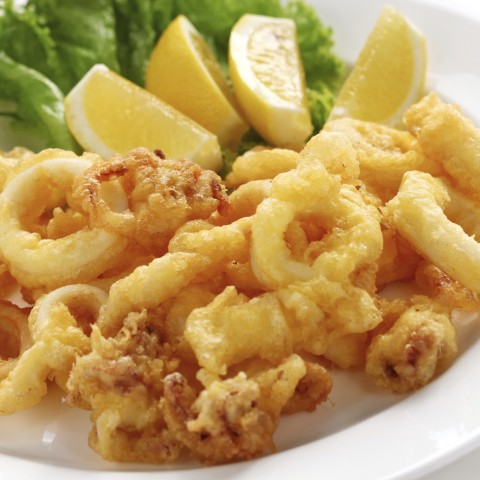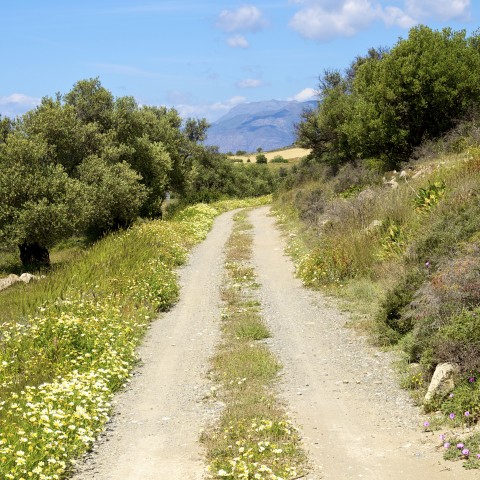Clean Monday (also known as Kathari Deftera or Καθαρά Δευτέρα) is a religious holiday in Greece, and marks the beginning of Lent. This is a holiday of great importance in the country, is a strong representation of what Christianity looks like in Greece, and provides a lot of important cultural insight.
Let GreekPod101.com guide you through all the facets of Ash Monday. This way, you can learn the Greek language in context, and gain much knowledge concerning the country and its people. Let’s get started!

1. What is Clean Monday in Greece?
Clean Monday is a particularly popular celebration. It is called Clean because on this day the Lent fast that cleanses the Christians spiritually and physically begins, while it is also the end of the frenzied celebrations of the Triodion. Clean Monday is a public holiday, so families take the opportunity to gather and celebrate the beginning of Lent together, 48 days before Easter.
2. When is Clean Monday?
The date of Clean Monday in Greece differs each year. For your convenience, here’s a list of this holiday’s date for the next ten years:
- 2019: March 11
- 2020: March 2
- 2021: March 15
- 2022: March 7
- 2023: February 27
- 2024: March 18
- 2025: March 3
- 2026: February 23
- 2027: March 15
- 2028: February 28
3. Reading Practice: How is Clean Monday Celebrated?
Read the Greek text below to learn how Greeks celebrate Clean Monday! You can find the English translation directly below it.
—–
Για τους περισσότερους η Καθαρά Δευτέρα σημαίνει εκδρομές στην ύπαιθρο, πέταγμα χαρταετού, παραδοσιακή μουσική και φαγοπότι με νηστίσιμα φαγητά όπως η λαγάνα, ο ταραμάς, ο χαλβάς, η φασολάδα και τα καλαμαράκια. Η λαγάνα είναι ένα είδος επίπεδου άζυμου ψωμιού πασπαλισμένο με σουσάμι. Όσον αφορά τους χαρταετούς, παλιότερα οι άνθρωποι τους κατασκεύαζαν μόνοι τους με καλάμια και χαρτί. Επειδή όμως αυτό θέλει μαστοριά στο ζύγισμα για να μπορέσει να πετάξει ο χαρταετός, σήμερα οι περισσότεροι αγοράζουν έτοιμους. Τα έθιμα της καθαροδευτεριάτικης αυτής εξόδου λέγονται «κούλουμα».
Σε πολλές περιοχές της Ελλάδας τα κούλουμα γιορτάζονται με διαφορετικούς τρόπους. Για παράδειγμα στο Γαλαξίδι η Καθαρά Δευτέρα μόνο «καθαρή» δεν είναι, καθώς από το μεσημέρι και μετά λαμβάνουν χώρα τα διάσημα «αλευρομουτζουρώματα». Εκατοντάδες κάτοικοι και επισκέπτες συγκεντρώνονται στο λιμάνι όπου και διεξάγεται ένας απίστευτος πόλεμος με τόνους από αλεύρι, φούμο και λουλάκι. Τα κυνηγητά και τα πειράγματα συνεχίζονται μέχρι το σούρουπο. Το έθιμο αυτό είναι αρκετά διασκεδαστικό, αρκεί να τηρούνται οι απαραίτητες προφυλάξεις όπως η χρήση προστατευτικών γυαλιών, μάσκας και κατάλληλων ρούχων.
Πολλά έθιμα αυτή την ημέρα αναβιώνουν το θέμα του γάμου. «Του Κουτρούλη ο Γάμος» στη Μεθώνη ήταν ένας πραγματικός γάμος που άφησε εποχή τον 14ο αιώνα. Στη Θήβα ο «Βλάχικος γάμος», που έχει ήδη ξεκινήσει από την Τσικνοπέμπτη, κορυφώνεται με το ξύρισμα του γαμπρού και το στόλισμα της νύφης, η οποία στη πραγματικότητα είναι άντρας! Γενικά σ’ όλη την Ελλάδα πολλοί δήμοι προσφέρουν δωρεάν λαγάνες, φασολάδα, χαλβά και ελιές, όπως κάνει κάθε χρόνο ο Δήμος Αθηναίων στον Λόφο Φιλοπάππου και στο Άλσος Βεΐκου.
Η δωρεάν προσφορά φαγητού στις καθαροδευτεριάτικες εκδηλώσεις προσελκύει κάθε χρόνο μεγάλο αριθμό κόσμου, με αποτέλεσμα να δημιουργούνται τεράστιες ουρές στους πάγκους και να εξαντλούνται οι μερίδες μέσα σε πολύ λίγη ώρα.
—–
For most people, Clean Monday means excursions in the countryside, flying a kite, traditional music, and a feast with fasting foods such as lagana bread, taramas (salted and cured cod roe), halva, bean soup, and squid. Lagana is a type of flat unleavened bread sprinkled with sesame seeds. Regarding the kites, in the old days, people used to make them by themselves with reeds and paper. But because this requires good craftsmanship in the weighting so that the kite can fly, today most people buy ready-made ones. The customs of this Clean Monday outing are called koulouma.
In many areas of Greece, koulouma are celebrated in different ways. For example in Galaxidi, Clean Monday is anything but clean, as from noon and beyond, the famous flour fights take place. Hundreds of residents and visitors gather at the harbor, where an incredible war is performed with tons of flour, soot, and indigo. All the chasing and teasing continues until dusk. This custom is quite fun, as long as the necessary precautions are taken, such as the use of protective goggles, a mask, and suitable clothing.
Many traditions on this day revive the concept of marriage. Koutrouli’s wedding in Methoni was a real marriage that made history in the 14th century. In Thebes the Vlach wedding, which has already started from Fat Thursday, culminates with the shaving of the groom and the dressing of the bride, who in reality is a man! Generally all over Greece, many municipalities offer free lagana bread, bean soup, halva, and olives, just like the municipality of Athens does every year on the Filopappou Hill and the Veikou Park.
The offer of free food during the festivities of Clean Monday attracts a large number of people every year, resulting in long queues at the stalls and the depletion of the portions within a very short time.
4. Additional Information
There is also another variation on why we characterize this day as Clean. Do you know which one it is?
The other version is that Clean Monday was named this way because in the old days the housewives used to wash their cooking utensils all day long after the feast of the carnival. Clean Monday meals may be delicious, but you can imagine the mess they leave behind on cookware!
5. Must-know Vocab
Here’s some vocabulary you should know to celebrate Clean Monday in Greece!
- Εξοχή (exohí) — “countryside”
- Νηστεία (nistía) — “fasting”
- νηστίσιμο φαγητό (nistísimo fayitó) — “Lenten meal”
- πέταγμα χαρταετού (pétagma hartaetú) — “kite flying”
- Χαρταετός (hartaetós) — “kite”
- καθαροδευτεριάτικη έξοδος (katharodefteriátiki éxodos) — “Clean Monday outing”
- Διασκέδαση (diaskédasi) — “fun”
- Σαρακοστή (Sarakostí) — “Great Lent”
- Φασολάδα (fasoláda) — “Greek bean soup”
- Κούλουμα (kúluma) — “celebration of Clean Monday”
- Λαγάνα (lagána) — “Clean Monday bread”
- Χαλβάς (halvás) — “halva”
- Αλευρομουτζούρωμα (alevromudjúroma) — “flour fight” (also known as the flour war)
- Λουλάκι (luláki) — “indigo”
- Ύπαιθρος (ípethros) — “countryside”
- καλαμαράκια τηγανητά (kalamarákia tiganitá) — “deep fried calamari”
- Χορός (horós) — “dance”
- Ταραμάς (taramás) — “preserved fish roe”
- Ταραμοσαλάτα (taramosaláta) — “fish roe dip”
To hear each of these vocabulary words pronounced, check out our Greek Clean Monday vocabulary list. Here you’ll find each word accompanied by an audio of its pronunciation.
Conclusion
Now you know more about Clean Monday in Greece. What do you think of this holiday? Is there a similar celebration in your own country? Let us know in the comments!
To learn even more about Greek culture and the language, visit us at GreekPod101.com! We offer an array of insightful blog posts, free vocabulary lists, and even an online community to discuss lessons with fellow Greek learners! You can also check out our MyTeacher program if you’re interested in pursuing a one-on-one learning experience with your own personal Greek teacher.
We hope you enjoyed learning about Greek Clean Monday and that you took away something valuable from this lesson. Know that all of your studying and hard work will pay off, and you’ll be speaking like a Greek native before you know it!














